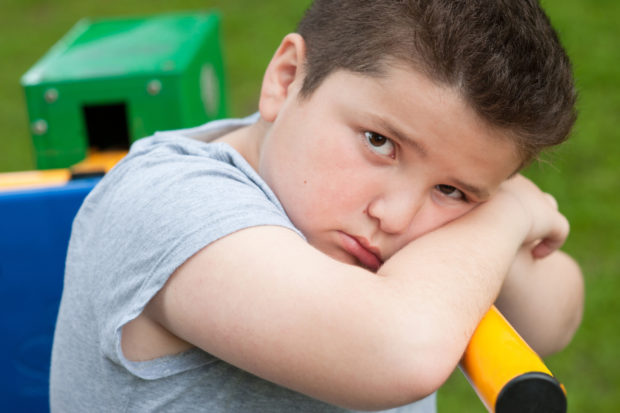Obesity in childhood linked to higher risk of anxiety, depression and early death—study

Children who are obese may have a higher risk of anxiety and depression, according to new research. Image: Ruslanshug/IStock.com via AFP Relaxnews
Two new European studies have found that those who are obese as children may have a higher risk of anxiety, depression and even early death as adults.
Carried out by researchers from Karolinska Institutet in Sweden, the first study looked at data gathered from 41,359 children and teenagers aged 3 to 17. From the group, 7,049 received obesity treatment at some point during their childhood or adolescence, while the other 34,310 participants acted as controls.
The researchers, who published their findings in the journal PLOS Medicine, found that those who had obesity in childhood had a three times higher risk of dying in early adulthood (between the ages of 20 and 25) than the participants.
Moreover, more than a quarter of the deaths among the participants who were obese as children had obesity recorded as a primary or contributing cause of death.
“Our study shows that children with obesity have a significantly higher risk of premature mortality already as young adults,” says Emilia Hagman, one of the study’s authors. “Both the risk of death from somatic diseases, of which more than a quarter were directly related to obesity, and the risk of suicide were increased for this group. We did not, however, see an increased risk of mortality from injuries or external causes such as criminal acts.”
In the second study, which was published in BMC Medicine, the same team of researchers looked at 12,507 children between the ages of 6 and 17 who were treated for obesity, and compared them with a group of 60,063 children from the general population who acted as controls.
This time they found that after taking into account possibly influencing factors such as family history of anxiety or depression and socioeconomic status, being obese was linked to an increased risk of anxiety and depression in children and adolescents. Obese boys showed a 33% higher risk of anxiety and depression than boys from the general population, while obese girls had a 43% higher risk of the mental health conditions.
The researchers say the findings highlight some of the health risks associated with childhood obesity and the need to prevent obesity in children and support those who are obese.
“Taken together our studies highlight the vulnerable situation that children with obesity are in,” says Louise Lindberg, another of the study’s authors. “Anxiety and depression cause emotional and physiological stress and suffering and may also hinder obesity treatment. It is important that children with obesity are offered adequate and long-term treatment early in life to reduce these risks. It is deeply unethical that children with obesity do not receive any form of treatment in some regions in Sweden.” IB /ra
RELATED STORIES:
Regular exercise could improve the cardiovascular health of overweight kids
Caffeine may reduce harmful effects of diet rich in fat, sugar